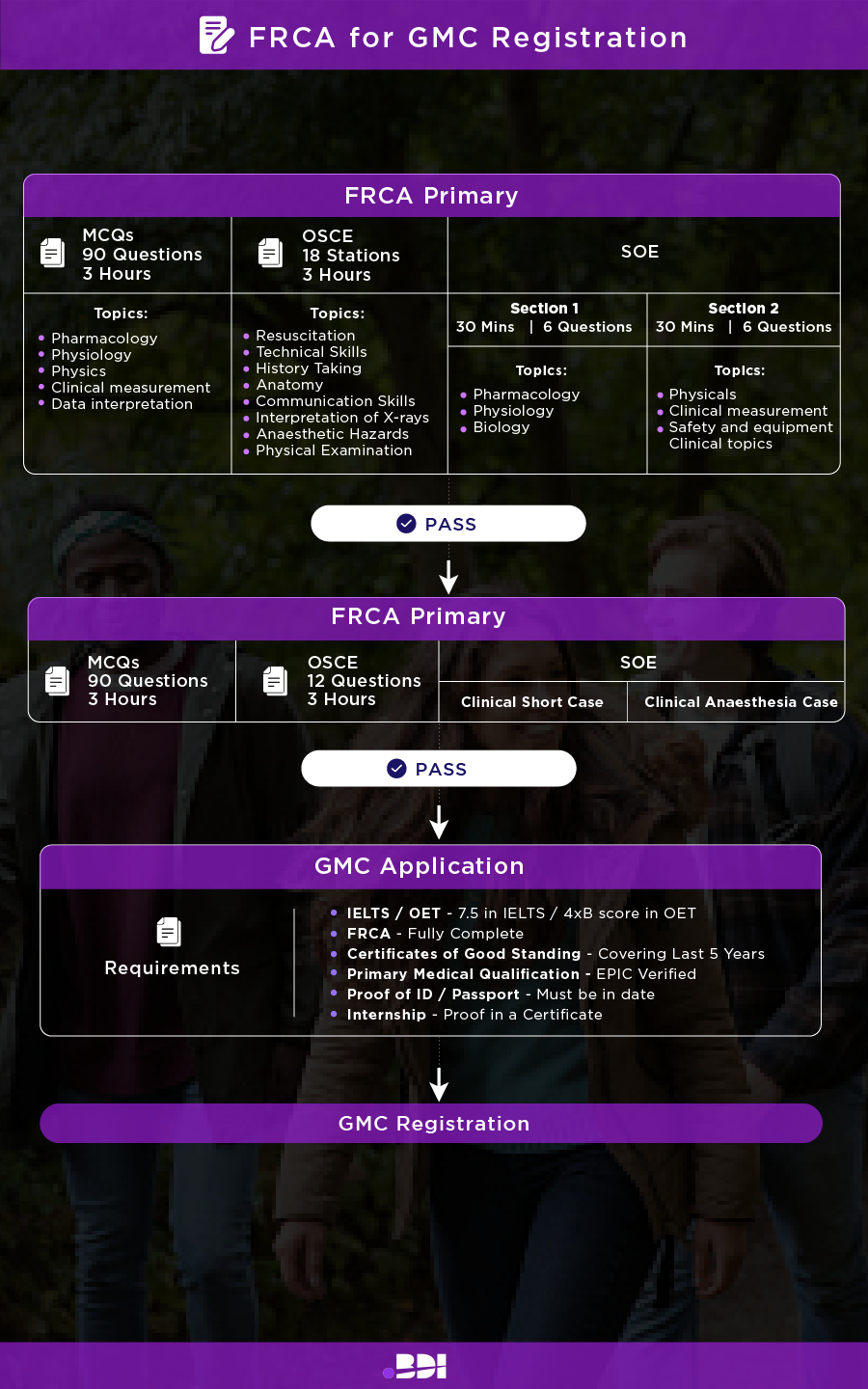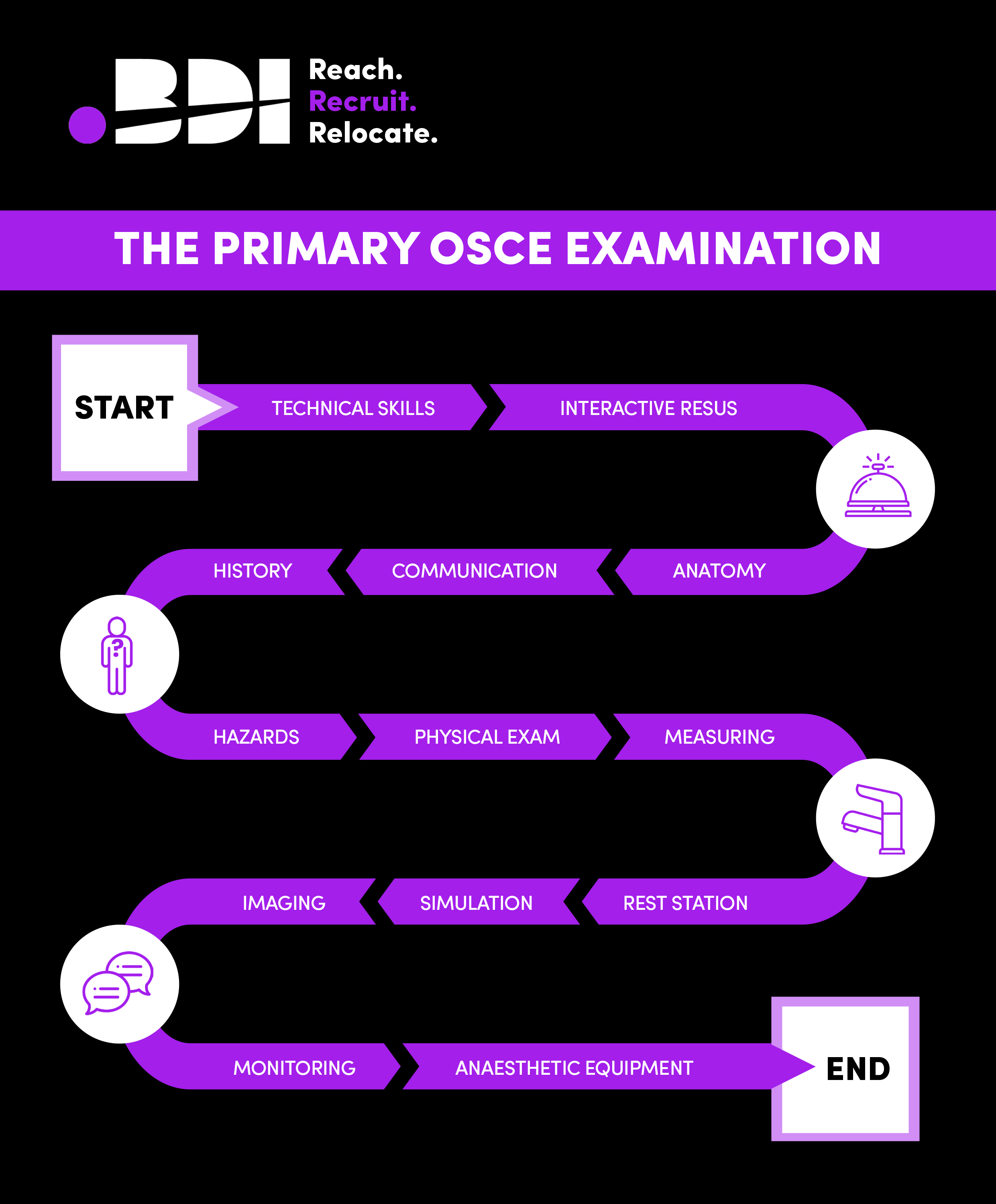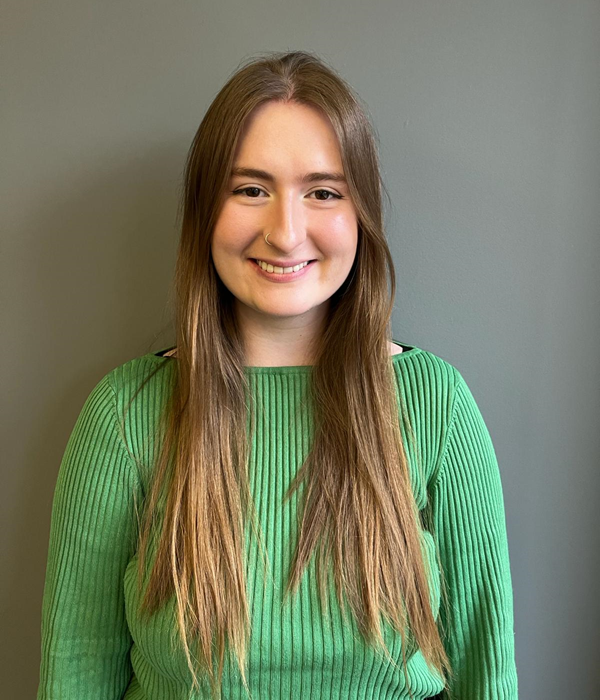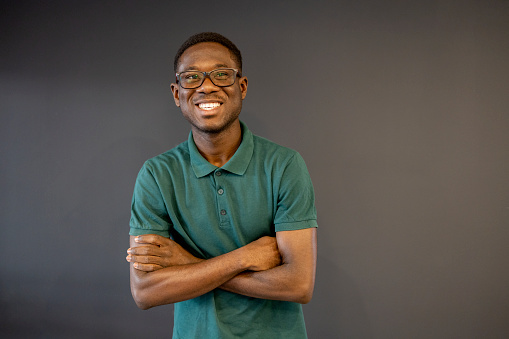FRCA for GMC Registration
02 Mar, 20239 Minutes
For international medical graduates (IMGs) to work for the NHS as anaesthetists, they must prove they have the relevant anaesthetics skills to practice medicine safely. For that, they need GMC registration for anaesthetics. The question is, how do you acquire that? There are several routes, with one of the most popular being the FRCA for GMC registration.
FRCA stands for the Fellowship of the Royal College. It comes in two sections: primary exams and final exams. Passing the FRCA means you are a member of the Royal College of Anaesthetists, and you can use the letter FRCA after your name. If you pass the primary part it also means you can apply for your GMC certification, which allows you to work in the UK.
Why is GMC Registration Important?
GMC registration for anaesthetics is crucial for practising medicine in the UK. The GMC register is there to prove that everyone on it can practice medicine safely – no matter where they come from or what specific qualifications they have. It creates an NHS that people can rely on.
Completing the FRCA primary provides you with a path to becoming GMC certified. It should be noted that you only need to complete the primary FRCA exams for this and not the full FRCA qualification.

Using TEE
You need an Anaesthetist Royal College membership to sit FRCA exams, which is something non-UK cannot do. Luckily, there is another option for overseas medical graduates – TEE (temporary exam eligibility). Using TEE, IMGs can apply for and sit the FRCA examinations. To do this, you will need the following:
- Proof of Registration from an International Medical Council
- Evidence of Completion of Anaesthetic Training (or proof of current attendance)
Primary FRCA Exams: What to Expect
The primary exams currently cost £370. These costs usually increase annually, so expect the price to change depending on when you take this exam. You’ll pay for this before sitting the exam.
There are two parts to the primary FRCA exams, and they include:
1. Multiple Choice Question (MCQ)
You can do the primary MCQ if you hold national registration with an international medical council and have applied for TEE three months before the exam date.
The MCQ exam has ninety multiple-choice questions, and you get three hours to answer them. The topics include pharmacology, physiology, physics, clinical measurement, and data interpretation. This exam is held three times a year in the UK in March, September, and November.
2. The Objective Structured Clinical Examination (OSCE) and Structure Oral Examination (SOE)
You can only take the OSCE and SOE exams once you have passed the MCQ exam. You will also need an overseas competency in anaesthetics awarded to you before taking them.
The OSCE and SOE get taken together, each testing different areas of your anaesthetics skills.
The OSCE is about proving your procedural and cognitive skills, and it involves completing eighteen stations in one-hundred-and-eight minutes. The stations follow the format outlined in this infographic:

The SOE comes in two sections. The first section lasts thirty minutes, and you answer six pharmacology, physiology, and biology questions. The second section also lasts thirty minutes with six questions. The topics differ, however, as it covers physicals, clinical measurement, safety and equipment, and clinical topics.
Before we move on to what to expect in the Final FRCA exam our director Tom Calver explains more about the Primary exam in this video:
Final FRCA Exams: What to Expect
The latest price for the final FRCA exams is £545. Again, expect this cost to rise each year!
Much like the primary FRCA exams, the final FRCA exams come in two sections. Another similarity is that they involve both a written paper and an oral examination. Here is what to expect.
1. Final Written Exam, including MCQ and SAQ (short question exam)
The final written exam tests your factual knowledge. The MCQ includes ninety multiple-choice questions – sixty true or false questions, with twenty single-best-answer questions. You get three hours to complete it.
The SAQ exam includes twelve questions in three hours, covering mandatory units and the rest of the curriculum.
2. The Structure Oral Examination (SOE)
The SOE tests your judgment, prioritisation, and presentation of arguments. It requires higher thinking; it’s not just about the knowledge you have; it’s also about how you use it in real-life clinical situations.
To show that you understand the theory and know how to apply the knowledge, you will complete two sections – a clinical short case and a clinical anaesthesia case. It should be noted that you can only do this exam if you have completed the final written exam in the past three years.
We have some tips on how to pass the exams but first you should take a look at this video from our director Tom in which he explains everything you need to know about the FRCA Final exams:
Passing the FRCA Exams
If you sit the FRCA exams, you want to know that you’ll pass the first time. After all, they cost time and money! One of the best ways to prepare is to engross yourself in revision. Read a ton of relevant anaesthesiology books to expand your knowledge on all of the topics, including physiology, physics, anatomy, and more. Remember that you need a wide breadth of knowledge to pass these exams – being an expert in one section will not cut it.
For the oral exams, it’s not just knowledge you need – you must also present your cases with confidence and clarity. To do this, you can practice the oral exams with your tutors, mentors, or classmates taking the same exam. Knowing how to articulate yourself clearly goes a long way in terms of passing!
What’s Next?
The first thing you should do after passing the FRCA exams is congratulating yourself. By passing, you prove that you have stellar knowledge of anaesthetics and are worthy of working as an anaesthetic around the world, and you can prove that with your FRCA (Fellowship of the Royal College of Anaesthetics). Even if you've only completed the primary exam, you can apply for your GMC registration. Of course, you’ll need other documents for this stage, such as your CoS and passport, which will grant you a license to practice medicine in the UK. If you need any extra assistance with this stage (or any stage following that, such as the relocation process), email BDI Resourcing and we’ll be here to help.



